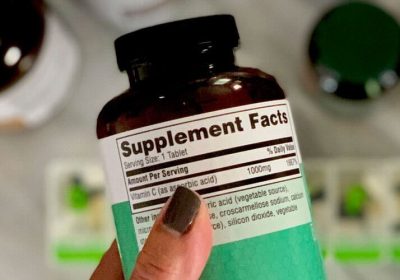Remember when Secretary Kennedy vowed last March to make American food safer and reform the Generally Regarded as Safe (GRAS) pathway for ingredients and additives? Democratic members of Congress have sponsored two bills in an attempt to reform the GRAS pathway. One of these bills is particularly problematic: if passed into law, it could threaten access to thousands of healthy and safe foods and supplements. Action Alert!
Listen to the audio version of this article:
THE TOPLINE
- The Markey-Booker bill would effectively end the GRAS pathway, threatening access to thousands of safe ingredients and overloading the FDA with unmanageable reviews.
- The Schakowsky-DeLauro bill would require regular reassessments of certain additives but fails to address how truly harmful chemicals are still being approved through flawed FDA processes.
- ANH-USA supports smart reform—not blanket overregulation—and proposes a more targeted, transparent, and risk-based approach to ensure both food safety and consumer choice.
Two new bills introduced in Congress are being touted as necessary steps to reform the GRAS (Generally Recognized as Safe) system—a regulatory framework that governs which ingredients can be added to food. But while the stated goal is protecting consumers from harmful chemicals, the actual effect would be to overload the FDA, choke off access to safe and natural health products, and create one of the biggest regulatory logjams in the agency’s history.
What the Bills Do
On July 17, 2025, Senators Ed Markey (D-MA) and Cory Booker (D-NJ) introduced the Ensuring Safe and Toxic-Free Foods Act of 2025, a bill that would effectively abolish the self-affirmed GRAS pathway (when a company independently determines an ingredient is GRAS). Under this proposal, any ingredient currently on the market through self-GRAS determinations—estimated to be over 10,000 substances—would be required to submit a formal GRAS notification to the FDA within two years. These notifications would have to include detailed safety data, and only those that receive a “no questions” letter or remain pending without objection would be allowed to stay on the market during that time.
It gets worse. The bill appears to shut down the GRAS process entirely after a two-year transition period. The bill only provides for the lawful marketing of substances subject to GRAS notifications submitted before the bill’s effective date. As currently written, there is no option for companies to use the GRAS pathway after the bill’s effective date. This, in effect, would mean transitioning to a Euro-styled pre-market authorization system.
The bill also shifts the responsibility and burden for proving a food additive is safe from the government to the company making it. This gives the FDA broad power to question the safety of any additive—even if it can’t actually prove the product is harmful to consumers.
To sum up: the bill would lead to long, drawn-out government reviews, ultimately end the GRAS process for new ingredients, and allow the FDA to block products from the market based on assumed, not proven, safety risks. This dramatic shift would dismantle the core flexibility that has enabled innovation in the natural products and supplement space.
Meanwhile, a second bill—the Food Chemical Reassessment Act of 2025, reintroduced on July 10 by Representatives Jan Schakowsky (D-IL) and Rosa DeLauro (D-CT)—would require the FDA to reassess the safety of at least ten food additives or packaging chemicals every three years. The bill targets a specific list of additives with known health concerns, such as titanium dioxide, Red 40, Yellow 5, BHA, and BHT, mandating the agency to reevaluate their safety based on the latest science. If a substance is found to be unsafe, the FDA would be required to amend or revoke its authorization. The Markey-Booker bill also includes a version of this proposal.
But wait a moment: all these problematic ingredients were never self-affirmed as GRAS—they were fully approved following FDA scrutiny, some many years ago. So yes, we’re happy to see reform and an update to the review process at the FDA, but we’ve laid out a much more targeted, efficient, and effective tiered model for assessments in our April white paper that doesn’t rely just on FDA input. We think our proposed approach is essential not only to prevent log jams at the FDA, but also to eliminate the risk of revolving doors with industry resulting in manipulated science—the very situation that has led to the regulatory mess that’s contributed to the increasing toxicity of the US food supply in recent decades.
Why We Need to Oppose These Bills
At ANH-USA, we agree that the GRAS system is flawed. But these bills don’t fix what’s broken—they bulldoze the entire system and replace it with an unworkable mess that won’t make food safer and could leave consumers with fewer options for maintaining their health.
As we alluded to above, the real irony is that many of the most dangerous chemicals in the American food supply—like Red 40, titanium dioxide, potassium bromate, and most of the ingredients called out in the Schakowsky-DeLauro bill—were actually approved as safe by the FDA. They were not introduced under the self-GRAS pathway, but through official agency channels. Simply giving the FDA more to review, and more authority to wield, won’t solve the core problem of how harmful substances are allowed into food in the first place.
By forcing companies to submit GRAS notifications for every self-GRAS substance, the Markey-Booker bill creates an impossible scenario. The FDA already lacks the resources to manage its current workload. Requiring reviews of thousands of existing substances would create bureaucratic gridlock of historic proportions—delaying real reform and likely allowing truly dangerous ingredients to remain on store shelves simply because the agency is overwhelmed.
Many of the companies most affected by this overhaul would be small- and mid-sized businesses that produce natural, health-promoting functional foods and supplements. These companies typically don’t have the resources to compile complex GRAS dossiers for every ingredient they use. The result? Consumers could lose access to a wide range of safe, beneficial products, smaller innovative companies would go out of business, and the market would be monopolized by Big Food.
With regard to the Schakowsky-DeLauro proposal, it may sound good to periodically review 10 food additives, but this bill is completely unnecessary. That’s because right now, at any time, the FDA, under the adulteration provision of the Food, Drug & Cosmetic Act, can remove an ingredient, or products containing a given ingredient, from the market once it can show it is unsafe. This bill simply adds another layer of bureaucracy. How, for example, will the FDA choose which 10 products to reassess? You can bet natural products will be on the FDA’s hit list, given this agency’s sordid history of attacking and undermining anything that is seen to compete with FDA-approved drugs.
There’s a Better Way

At ANH-USA, we’ve already laid out a much better and entirely rational and realistic path forward in our recent white paper, Reforming GRAS: Food Safety Without Sacrifice. Our approach focuses on transparency and targeted reform—not sweeping changes that crush innovation. It also doesn’t need yet more legislation and red tape, just some relatively small changes to FDA rulemaking.
We propose:
- Requiring companies to publicly disclose self-GRAS determinations through a GRAS Transparency Register, allowing for independent review by scientists, consumer advocates, and researchers.
- Using a tiered, proportionate risk model that distinguishes between high-risk (notably synthetic) chemicals and low-risk (notably natural) compounds with long histories of safe use.
- Prioritizing the removal of ingredients already known to be hazardous, especially those approved through outdated FDA assessment processes.
This strategy addresses the real problem—dangerous chemicals slipping through the cracks—without slamming the door on innovation or consumer choice.
Reform Without Regression
We believe in protecting public health. But we also believe consumers should retain access to the ingredients they rely on to support their wellness.
What the Markey-Booker and Schakowsky-DeLauro bills miss is the nuance required to reform a system as complex as GRAS that has evolved over nearly 70 years. They throw the baby out with the bathwater, punishing responsible manufacturers and health-conscious consumers, while doing little to stop the actual flow of toxic substances into our food.
This is a pivotal moment for food safety—and for your right to choose how you support your health. We urge Congress to reject these misguided proposals and embrace meaningful reform that combines transparency, safety, and access. We haven’t often had the opportunity to say this before, but we think, under Dr. Marty Makary’s leadership, the FDA might have a better chance of getting this one right through FDA rulemaking.
Action Alert!




I’m sure Durbin put them up to this. Can’t wait for him to leave, but he is not the only Democrat that thinks {takes money} like him. we have to squash them at all costs !
Thanks for fighting corruption and the right to use supplements
Profits over people’s health is so yesterday. Today it’s about returning to nature for sustainable mental and physical health. Do the right thing for citizens and get the crap out of our food!
Not on my watch!